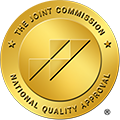Residential
Supportive Housing
Memphis Detox offers comprehensive residential addiction treatment for individuals transitioning from detox to long-term recovery. Our inpatient rehab program provides a safe, structured environment with clinical supervision, allowing patients to stabilize, build healthy routines, and focus on their healing process. We treat a wide range of substance use disorders, providing evidence-based therapy, medication management, and continuous support tailored to each person’s specific needs.
Whether you’re struggling with alcohol, opioids, benzodiazepines, stimulants, or prescription medications, our dedicated team is here to help you begin your recovery journey.
What Is
Residential Supportive Housing in Addiction Treatment?
Residential supportive housing is a safe, sober environment for people to stay while receiving treatment for drug or alcohol addiction. Inpatient treatment offers the highest level of care for individuals recovering from substance use disorders. Unlike traditional housing or sober living arrangements, this model includes clinical oversight, structured daily routines, and therapeutic services. It provides a stable, drug- and alcohol-free environment where residents can safely recover from the physical and emotional effects of addiction. Memphis Detox can help find sober living arrangements, such as residential supportive housing, while you go through our detoxification process.
This level of care is especially beneficial for those with a history of relapse, co-occurring disorders like anxiety and depression, or limited support at home. The goal of residential supportive housing is to help individuals develop the life skills and coping strategies needed to lead a healthy, substance-free life. Patients engage in regular therapy sessions, educational workshops, and peer support groups while receiving continuous supervision and care.


Key Benefits of
Residential Addiction Treatment
There are many benefits to residential support vs an outpatient treatment program.
A secure setting that eliminates exposure to drugs and alcohol, reducing the risk of early relapse. Patients can focus entirely on their recovery in a calm, structured space.
Constant access to trained medical and behavioral health professionals who monitor symptoms, administer medications, and address mental health concerns as they arise.
Regular individual therapy, group therapy, and family therapy sessions help patients work through underlying issues related to addiction.
Living with others who are also in recovery fosters a sense of accountability and shared purpose. Patients connect through shared life experiences and support each other daily.
Recovery education, relapse prevention, and life skills training equip patients with the tools needed for long-term recovery and reintegration into everyday life.
How Residential Supportive Housing
Differs from Other Programs
Residential supportive housing stands apart from other treatment programs like outpatient rehab or sober living. Outpatient treatment may provide therapy and medication support, but patients return home each day, which can expose them to triggers and temptations. Sober living homes provide a substance-free environment but typically lack clinical supervision and structured programming.
At Memphis Detox, our residential addiction treatment program combines the best aspects of medical care, therapy, and community support. Patients live on-site in a safe and structured environment, receiving continuous oversight and personalized care. This intensive support is especially crucial during early recovery when individuals are most vulnerable to relapse.

Our Comprehensive
Drug Addiction Treatment Services
Every resident at Memphis Detox receives a personalized treatment plan tailored to their unique background, symptoms, and recovery goals. Our services include:
- Medication Management: Medications are used when appropriate to ease withdrawal symptoms, reduce cravings, and support mental health stabilization.
- Individual Therapy: One-on-one sessions help patients identify personal triggers, build self-awareness, and develop healthy coping mechanisms.
- Group Therapy: Facilitated peer discussions allow patients to share experiences, learn from others, and practice communication skills in a supportive setting.
- Family Therapy: Involving family members in the recovery process helps repair relationships and establish a healthier home environment post-treatment.
- Recovery Education: Patients learn about addiction, relapse prevention, emotional regulation, stress management, and other essential topics.
Daily structure is a cornerstone of our inpatient rehab program. Patients follow a consistent schedule that includes:
- Morning check-ins and goal setting
- Therapy sessions (individual, group, or family)
- Recovery education classes
- Mindfulness and wellness activities
- Meals and recreational breaks
- Evening reflections and peer support groups
This structure helps eliminate uncertainty, reduces idle time, and reinforces healthy habits. Routine provides stability, which is essential in the early stages of recovery.
Living in a recovery-focused community fosters trust, motivation, and accountability. Peer support is instrumental in overcoming isolation, which is a common barrier in addiction recovery. Group therapy sessions and in-person peer interactions encourage open communication, allowing patients to connect and grow together.
At Memphis Detox, our patients build meaningful relationships and often form lifelong bonds with others on similar recovery journeys. These connections become a valuable source of encouragement long after treatment ends.
Our residential addiction treatment program emphasizes practical life skills that support ongoing recovery and independence. These include:
- Budgeting and financial management
- Time management and routine building
- Communication and relationship skills
- Employment and educational support
- Healthy lifestyle habits, including nutrition, sleep, and exercise
These skills empower patients to lead productive lives after treatment and reduce the likelihood of relapse.
Seeking help for substance abuse can feel overwhelming. At Memphis Detox, we simplify the admissions process by offering compassionate, step-by-step guidance. From your first call, our admissions team will:
- Conduct a comprehensive intake assessment
- Verify insurance benefits and explain coverage
- Determine the most appropriate treatment plan
- Assist with logistics and support for family members
We accept most insurance providers and offer flexible financing options. Our team is committed to removing financial and emotional barriers to care.
Life After
Residential Supportive Housing
Our support doesn’t end when inpatient treatment does. We assist each patient with a personalized discharge plan, which may include:
- Step-down care in an outpatient or intensive outpatient program
- Referrals to sober living homes
- Continued individual or group therapy sessions
- Alumni support groups and follow-up care
We help patients maintain their progress and build a support network that sustains long-term recovery.


Who We Help
- Have completed detox and need further support
- Are at high risk of relapse
- Live in unstable or unsupportive home environments
- Have co-occurring disorders
- Require structure and supervision during early recovery
Our thorough intake process ensures each patient is placed in the best treatment plan based on their history, needs, and goals.
Frequently Asked Questions
Get in touch now!
Detox focuses on managing withdrawal symptoms and stabilizing the patient physically. Residential treatment follows detox, offering emotional, behavioral, and psychological support for long-term recovery.
Length of stay varies based on individual needs, but most patients remain for several weeks to several months. Longer stays are associated with better outcomes.
Yes. Family therapy is a core part of our program. Involving loved ones in treatment helps build stronger relationships and long-term support systems.
We provide aftercare planning to help each patient transition into the next phase of recovery, whether it’s outpatient treatment, sober living, or continued therapy.




